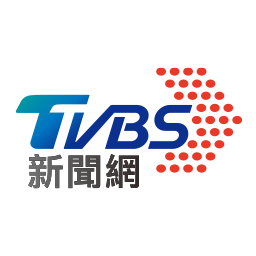-

Survey: Taiwan a top choice for studying abroad in 2024
More than 80% of international students are interested in applying for new specialized classes that allow them to work in Taiwan, according to a report by the Association of International Cultural and Educational Exchange Taiwan (AICEE Taiwan). The report, titled "Blue Ocean of International Enrollment Trends 2024," surveyed over 2,000 students from 60 countries who plan to study abroad and learn Chinese. The top three advantages Taiwan offers to international students are high-quality education, a safe environment, and the opportunity to learn Mandarin. Additionally, 86% of international students expressed interest in applying for internship subsidies provided by the Executive Yuan’s initiative and private enterprises. Upon graduation, international students prioritize entering suitable industries, finding employment quickly, and securing high employment rates. Furthermore, 14% of respondents hope that their experience studying in Taiwan will give them a competitive edge in their future education. Scholarships, English-taught programs, and high teaching quality are important factors for students considering studying abroad, while geographical location becomes crucial for those wanting to learn Chinese. Allen Hung, the CEO of AICEE Taiwan, advises Taiwanese universities to provide not only essential enrollment information but also reinforce information about internships and job opportunities during and after studies.2024/01/03 17:03 -

DPP’s Hsiao Bi-khim champions educational equity in Taiwan
Democratic Progressive Party (DPP) vice presidential candidate Hsiao Bi-khim attended an educational discussion in Taipei, where she shared plans for the National Project of Hope. The project aims to address issues of ’inverse distribution’ in education, particularly the financial burden on underprivileged children attending private universities. Hsiao emphasized the importance of nurturing global citizenry among children and connecting them to the world through digital tools. She also stressed the need for a friendly learning environment, anti-bullying initiatives, drug education, gender equality teachings, and addressing security concerns within campuses. Hsiao proposed creating a friendly environment for socio-economically disadvantaged students, reflecting Taiwan’s diversity and inclusivity. She called for the elevation of the quality of special education, advancement of higher education and vocational development, and a change in public perception about it. Hsiao suggested that private universities provide tuition assistance to alleviate the financial burden on poorer students. In terms of foreign affairs, she highlighted her efforts to sign an educational Memorandum of Understanding while stationed in the U.S., offering scholarship opportunities and encouraging Americans to learn Mandarin and visit Taiwan for Taiwan’s global integration.2024/01/03 10:54 -

NTU students vote on ’108 Curriculum,’ clash over classics
The recent debate over the removal of classical Chinese literature from Taiwan’s Ministry of Education’s 108 Curriculum has sparked diverse opinions among students at National Taiwan University (NTU). In a student-led poll on Dcard, 38% of participants supported a teacher’s criticism of the curriculum reform, arguing that classical literature is an essential part of Mandarin education. On the other hand, 24% of students opposed the importance of classical texts, viewing them as pedantic Confucian brainwashing. Interestingly, 39% of students abstained from taking a strong stance, humorously identifying themselves as "engineering majors too busy with homework to have an opinion." Student comments highlighted the complexity of the issue, with some emphasizing the importance of classical Chinese in enhancing writing skills and its philosophical value, while others expressed concerns about a potential lack of cultural depth in young people if literary content is reduced.2023/12/11 20:03 -

New guidelines boost competency, not less virtue: MOE
The Ministry of Education in Taiwan has clarified that the new Curriculum Guidelines have not abandoned traditional virtues, but rather aim to encourage students to contemplate and practice these values in everyday life. The guidelines emphasize competency-based learning and include selections of classical Chinese texts from different eras, authors, and genres. The Ministry responded to criticism by stating that traditional virtues such as righteousness and integrity have not been discarded. They also highlighted that Taiwanese students possess strong competencies, which can be attributed to the new competency-driven curriculum. The curriculum for Mandarin Chinese is designed to develop students’ ability to articulate and rationalize thought, with materials reflecting various historical periods, ideologies, literary genres, Taiwanese modern literature, world Chinese literature, translations, and literary discourse. Classical Chinese texts still constitute an average of 35% to 45% of high school students’ studies over three years, reflecting diverse epochs, authors, and genres. The focus of Taiwanese education should be on developing critical thinking skills and enabling students to learn independently and build cultural depth.2023/12/08 17:40 -

Education head backs bilingual policy despite union concerns
Taipei’s Education Minister, Pan Wen-chung, responded to concerns raised by the National Federation of Teachers Unions (NFTU) about the 2030 Bilingual Nation policy. Pan emphasized the importance of English proficiency as a crucial competitive skill for students. He emphasized the need for a balanced approach in teaching methods and strategies to ensure that students’ foundational academic abilities are not neglected. The NFTU expressed apprehension that excessive emphasis on English in the bilingual policy could undermine national competitiveness and called for a thorough reassessment of language policies post-election. Pan highlighted the importance of English and digital literacy as vital competencies for students and stressed the necessity of the bilingual policy for English language education. He mentioned that the implementation of the policy allows schools to join gradually and includes plans for teacher training enhancements and the inclusion of foreign instructors. Pan also mentioned that Mandarin courses would be available alongside university courses conducted entirely in English to give students the freedom of choice. He noted that some locales have been overly emphasizing English expertise during teacher recruitment and that the Ministry of Education will issue reminders for a more balanced evaluation. Rolling revisions will be made based on the progress of the bilingual initiative.2023/12/07 21:17
廣告







